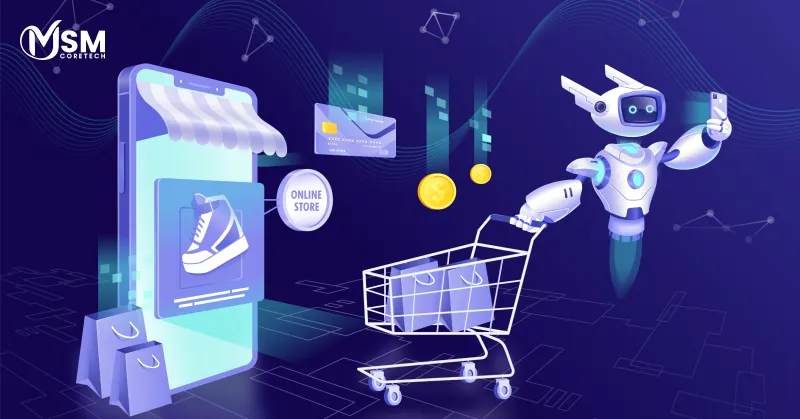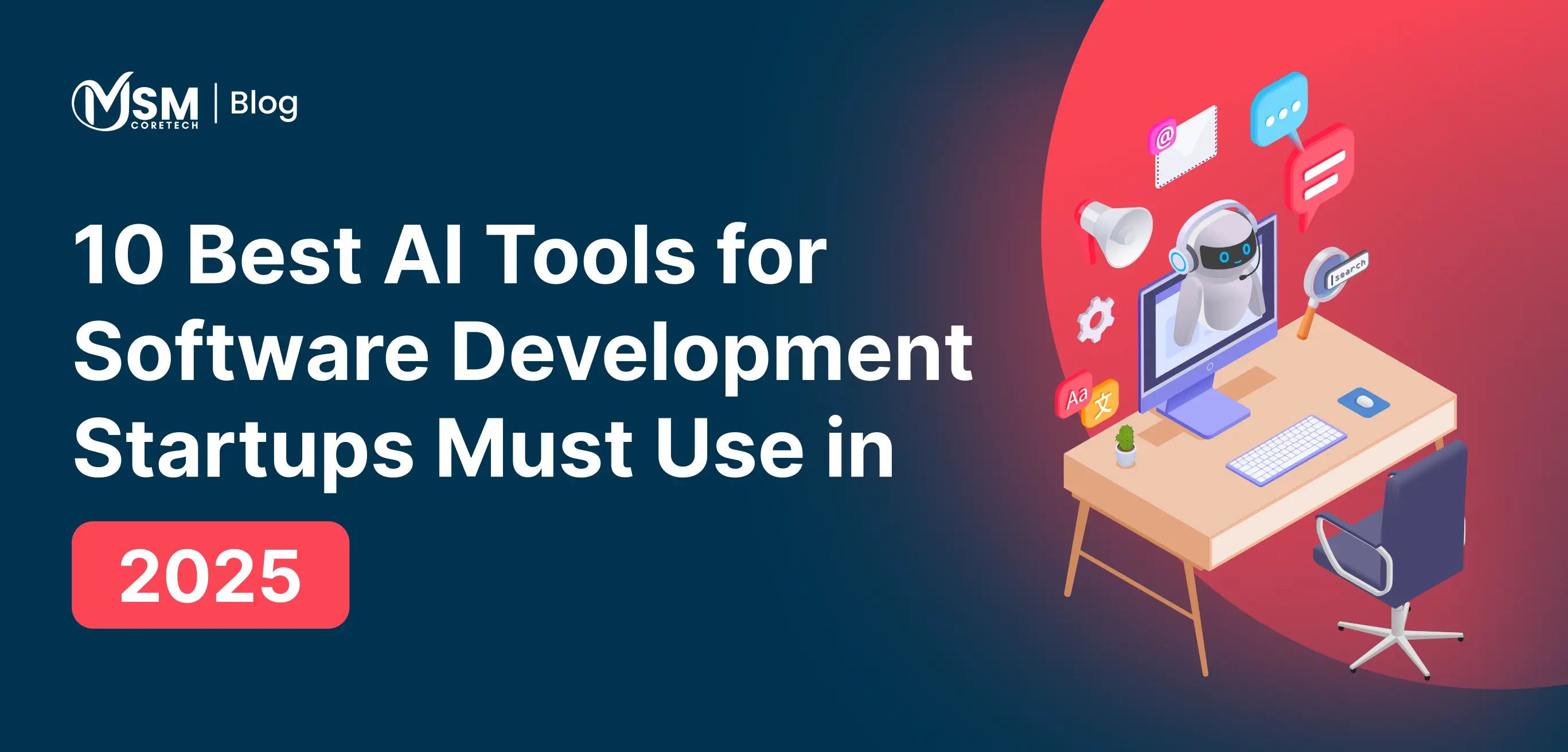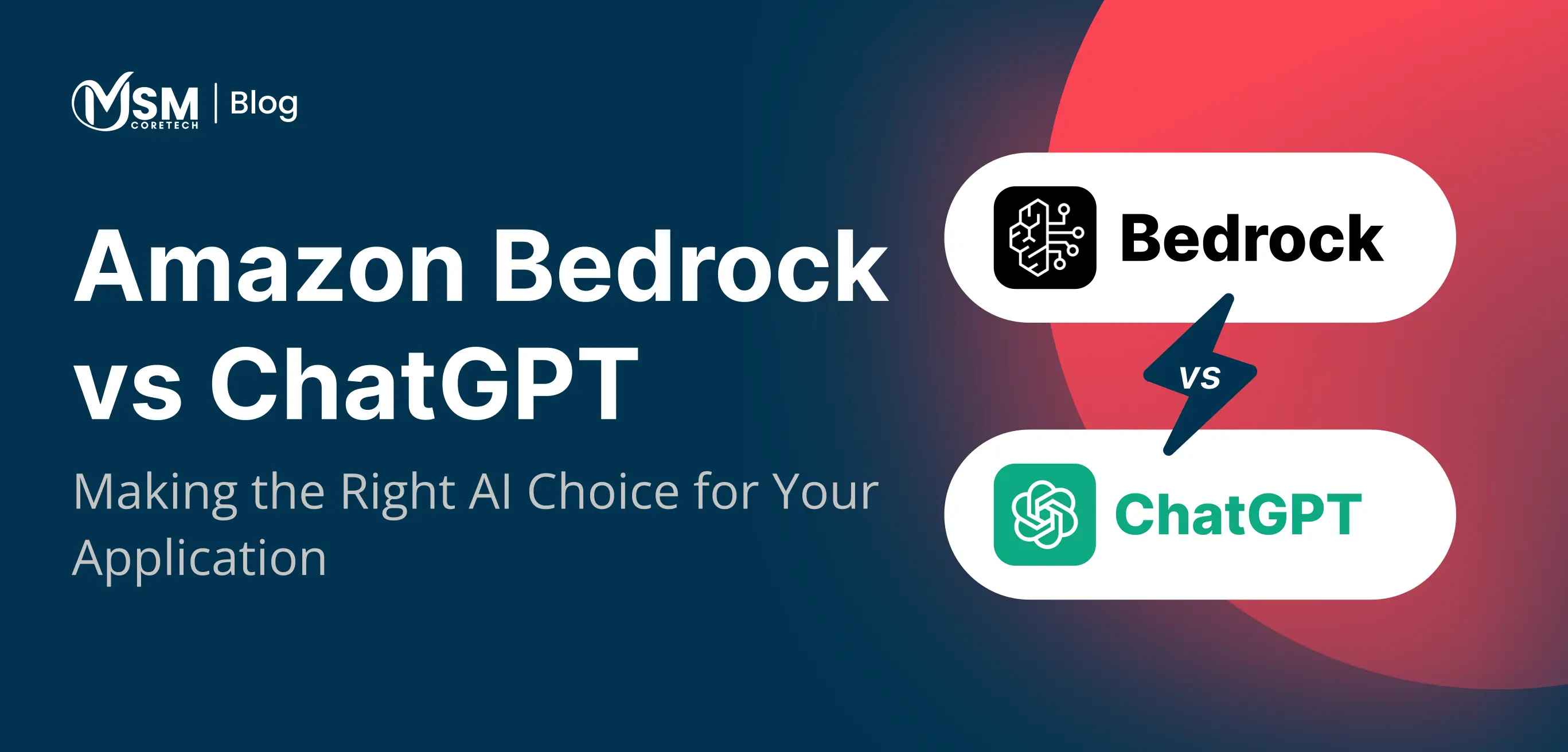Generative AI in eCommerce: Growth, Benefits & Future Trends

Generative AI in ecommerce is one of the most intriguing technologies determining the future of digital shopping. In fact, it is not like traditional AI, which mostly evaluates data to make anticipations. In comparison to it, generative AI can effectively generate fresh content like product descriptions, videos, photos and customized marketing advertisements. When it comes to ecommerce businesses, it eliminates manual tasks, allows faster scaling and offers a more engaging consumer experience.
Besides, recent research reports by Markets and Markets show that the generative AI market is expected to grow at a significant compound annual growth rate (CAGR) of 43.4% from US$71.36 billion in 2025 to US$890.59 billion by 2032. Therefore, by blending automation with creativity, generative AI is transforming the way brands deal with customers and setting new expectations for digital commerce.
Understanding the Concept: Generative AI
Generative AI is a type of artificial intelligence. This AI is capable of creating new content like written material, photos, videos, code, or even a product design. These are done by utilizing large amounts of user data and training data. Therefore, generative AI can be used to create new results that resemble the creativity of humans. So, as compared to conversational AI, it does not evaluate customer information and predict results.
For instance:
- In eCommerce, traditional AI can evaluate past user data to predict demand.
- In contrast, generative AI in ecommerce is capable of naturally generating product descriptions, customized message and shopping experiences.
- It also generates algorithm-focused pricing using certain consumer groups.
Well-Known Tools: AI for Ecommerce
To be more precise, generative AI tools let companies combine machine learning algorithms with actual customer feedback. Therefore, helping the development of the process and the possibility for ecommerce firms to enhance customer experience and improve their performance.
- ChatGPT - To be used in ecommerce customer service, content creation, and customer inquiries.
- DALL-E - Very useful while generating graphic content like banners, mockups, and social media graphics.
- Jasper AI - Seymattering is popularly used in targeted marketing (SEO) and content creation projects.
- MidJourney - Make it possible for companies to create AI-generated pictures of products or catalogs.
How Generative AI in E-Commerce Enhances Experience
Ecommerce industry is evolving, and thus AI powered Ecommerce solutions impact the way retailers interact with customers. One of the most promising developments is the introduction of Generative. It is an advanced machine learning technology that is changing the landscape of e-commerce. Generative AI can provide the best user experience, which means customers are ready to accept AI customization in ecommerce solutions. Integrating AI in online stores can:
- Help customize product-related recommendations to each customer.
- Automate tasks like content creation, customer support and inventory management.
- Reduce manual work and enhance planning efforts.
- Reduce operational cost through predictive analytics and automation.
- Revenue growth due to flexible pricing and personalized marketing campaigns.
- AI recommendation experience to encourage repetitive purchase.
Benefits of Using Generative AI in Retail Industry
Generative AI is transforming eCommerce; therefore, it is now a huge trend. But why are businesses investing in Generative AI ecommerce development services? What advantages does a website designing company providing generative AI solutions offer for your retail business? Let’s find out:
Improved Product Suggestions
The major advantage of Generative AI in ecommerce is its ability to improve product personalization. These AI algorithms can generate product recommendations that are specific to each customer. It can be done by evaluating user data like purchase history and browsing history, customer behaviour and characteristics. This degree of personalization improves customer satisfaction, boost sales and encourages repetitive purchases.
Enhances Customer Experience
Another major advantage of using Generative AI in online shopping is its capability to enhance the overall consumer experience. Generative AI can be utilized in many different ways for this enhancement. Thus, this approach includes compelling product descriptions, smart suggestions, AI generated photos, and smart chatbots. With this, companies can assist consumers in finding products that are related to their interests. This encourages a more satisfying and effective AI shopping experience.
More Effective Product Discovery
Generative AI models can enhance website search features by accepting natural language searches and delivering more accurate results. This boosts the overall user experience by assisting customers with AI personalization in ecommerce. Therefore, by using LLM, it knows how users search on your site. It then monitors the natural language searches, and when your customers search for something, it instantly shows them what they are looking for.
Improved Inventory Management
The role of AI in ecommerce is huge. It can assist you in minimizing the excessive stock or inadequate stock scenarios of your online store. These smart models can evaluate past data to anticipate upcoming demand for particular products in your store. That indicates you will know which product is going to be sold at a greater rate compared to the other. All that lets you improve inventory levels and minimize excess or shortage problems.
Voice-Controlled Shopping
Lastly, the most important advantage of implementing generative AI for ecommerce is its support for voice command actions. This elevated the whole shopping experience.
Due to the increase in voice assistants, generative AI allows voice-based shopping. This feature lets users check the amount, place order and get suggestions using their voice. Everything contributes to their shopping process and makes them important buyers of your store.
AI trends in eCommerce 2026
The estimate of the worldwide AI-based eCommerce market is reported to be $8.65 billion as of 2025. This market is further expected to reach $9.9 billion by 2026 and $22.60 billion by 2032, boosted by a compound annual growth rate (CAGR) of 14.60% from 2024 to 2032.
Also, it is seen that ecommerce development services in USA (North America) for AI in ecommerce dominated the market. Along with this, it is expected to stay in its position during the projected duration. This will happen because of its large budget allocated to AI solutions in the administrative and public sectors.
| Year | AI-Based Ecommerce Market Size |
| 2023 | $6.63 billion |
| 2024 | $7.57 billion |
| 2025 | $8.65 billion |
| 2026 | $9.9 billion |
| 2027 | $11.33 billion |
| 2028 | $12.99 billion |
| 2029 | $14.9 billion |
| 2030 | $17.1 billion |
| 2031 | $19.65 billion |
| 2032 | $22.6 billion |
Source: Precedence Research: Artificial Intelligence in E-commerce Market Size, Report by 2034
Use Case Scenarios of Generative AI in eCommerce
Generative AI is prompting brands to customize customer relations, simplify operational tasks, and boost sales. Therefore, with the help of an ecommerce development company in USA brands can integrate this technology to discover the true advantage of AI features. Mentioned below are the top generative AI use cases in the retail industry that a brand can use to boost efficiency.
| Use Case | Description |
|
Personalized Marketing Campaign |
|
| Visual Search and Suggestions |
|
| Virtual Try-on |
|
| Creative Product Description |
|
| Chatbots for Customer Support |
|
| Inventory Management |
|
Real-World Instances of Generative AI in eCommerce
Many top ecommerce companies are already using AI powered Ecommerce solutions to improve customer satisfaction and increase sales. So, here are some actual-life examples mentioned below:
Sephora (Chatbots and AI Beauty Assistants)
Sephora adapted generative AI to enhance your shopping experience and increase sales. A customer can go to the Sephora app and take advantage of its virtual artist. A user can upload a selfie and the virtual artist displays different shades of makeup products (lipstick) on their face. After choosing a preference, the assistant recommends a suitable lip liner and provides a “how-to use” video tutorial, all before the checkout procedure.
Nike (Personalized Email Campaigns)
Nike uses technologies like ML and behavioural analytics and AI integrated CRM to customize email campaigns. So, if you have recorded 3 marathons in a month in the Nike Run Club application, after a few weeks it will send your personalized emails. It includes subject lines such as “Are you prepared for the next 10k?” product recommendations, and personalized offers for members who achieved a new PR.
Lenskart (Virtual Try-On for Glasses)
Lenskart incorporates a 3D face mapping model, augmented reality and face detection based on AI algorithms. They offer a smooth virtual try-on experience via their app and website. A customer can scan their face in less than 10 seconds and the AI suggests frames based on the face shape and size. A user is allowed to try on 5 different pairs with different angle views before they make a purchase.
Final Thought
Generative AI for ecommerce businesses is transforming the way digital retail stores work. it enable a customized and more enhanced shopping experience. Along with it, these AIs promote fast content creation, smart inventory management, and more active engagement with users and customers. Although problems like data privacy and integration are not present, effective adoption will deliver sustainable development and customer loyalty.
MSM Coretech is a trusted Generative AI website development company that helps ecommerce companies to create personalised AI based apps. These apps enhance productivity, simplify tasks and encourage customer satisfaction. In simple terms, with the use of AI tools in the correct direction, your digital retail stores can gain a competitive edge and influence the future of digital shopping.
FAQs
What is the role of AI in ecommerce?
AI customizes the customer experience using recommendations and targeted marketing. It automates operations like client support and inventory management and offers data-driven suggestions to improve pricing and work.
What are examples of AI powered Ecommerce solutions?
Some of AI based ecommerce solutions include creative product descriptions, personalized content, customized recommendations, chatbots for customer service and flexible pricing
How does AI boost the whole shopping experience in the USA?
The AI shopping experience in USA is enhanced by features like enhanced product discovery, simplified checkouts, enhanced customer service using virtual assistants and inventory management.
How does AI create customized product recommendations?
AI creates customized product recommendations by evaluating customer data like browsing history and purchase history to know about search patterns and preferences.
How can AI give a competitive edge to digital shopping?
AI provides online shopping a competitive edge by delivering personalized experiences to each customer. It enhances customer service with ongoing support and improves using predictive analytics.
Related Blogs

AI in Warehouse Management: Costs, Benefits & Real ROI Insights
Discovering how AI is transforming warehouse management across industries and learning about real-world benefits, challenges, pricing models, and ROI strategies
Read More

Top AI Software Development Tools & Uses
Explore the best AI tools for software development in 2025. Learn how AI enhances coding, debugging, testing, automation, and productivity for faster and smarter software engineering.
Read More

Amazon Bedrock vs ChatGPT: Which AI Platform Is Best for Your Application?
Choosing between Amazon Bedrock and ChatGPT? This guide compares both AI platforms in depth — from features and pricing to integration and performance — helping you decide which one best fits your application’s goals.
Read More



